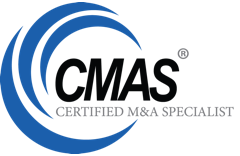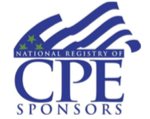The Art of M&A® Due Diligence: Live-Online with M&A Direct℠
Course Summary
Based on and adapted from our premier three-day on-site workshops, this ONLINE seminar will help you and your organization plan, launch and execute a successful M&A due diligence via primarily remote and virtual engagement methods.
Each module provides an overview of essential learning, processes and best practices necessary for success in every due diligence, through discussion, case examples and small virtual group breakouts, fundamental principles and practices will be adapted for optimal success and effectiveness in primarily remote or virtual due diligence scenarios.
The course is a total of 9 hours, conducted over three, 3-hour modules on successive days.
Key Topics include:
Module 1 – Financial Due Diligence
- Due Diligence Role and Purpose
- Starting with experience-based, real-world lessons learned, the due diligence process is dissected in terms of objectives that must be accomplished, stages of the process and the type and level of due diligence to be done at each phase of due diligence.
- Financial Diligence: Quality of Earnings (QofE)
- The foundation of adequate financial due diligence is a thorough understanding of the sustainable run rate of EBITDA and the underlying quality of the assets generating cash flow. This session will cover the potential valuation impact of adjustments to earnings, how the quality of earnings (Q of E) is different than an audit, discerning the validity of management adjustments to earnings, what the Q of E includes and does not include. There will also be practical insights for the buyer’s due diligence team regarding key watch-outs and red flags with standard management adjustments to earnings. Several case examples and activities will be used throughout this module to drive home practical applications.
- Financial Diligence: Working Capital
- A detailed working capital analysis is the next part of a successful financial due diligence effort. Buyers must determine if the target company will have enough cash to run the business after the deal and what is that amount. This module starts with a comprehensive identification of the components of working capital; identification of how sellers often try to reduce working capital from the business without impacting earnings or valuation; and what the buyer should do in the transaction to ensure the appropriate level of working capital delivered at closing.
- Financial Diligence: Income Statement and Balance Sheet
- Now it’s time to deep dive into the income statement to discern critical observations and insights about the target company business based on the presented financial data. Topics include sales analysis and trends, gross margin, including what specific elements drive gross margin and their respective impact on product pricing and cost structure, and what to do about one-time and nonrecurring income or expense items.
- Each category of the balance sheet will be discussed. We will look at how it impacts financial due diligence and critical lessons learned and watch-outs. To include accounts receivable, inventory, and other typical assets and liabilities, along with implications for a deal go/no-go, deal pricing and structure, and post-close treatment.
- Financial Due Diligence / Carve-Out Transactions
- Considered by many sophisticated acquirers to be the riskiest and most complex of all deal types, this module will define what a carve-out transaction is, why it is so complicated, the unique due diligence challenges and the essential priorities of a carve-out.
- Tax Due Diligence: Role and Focus
- From a strategic standpoint, tax diligence is required to identify potential deal-breakers as early as possible, evaluate tax impact on price and deal structure, and determine expected tax value to be delivered from the transaction. Discussion points will include when to engage tax advisors in the deal process, dealing with the entire array of tax types and cross-border complications and essential tax due diligence best practices for any prospective acquirer.
- Application Exercises and Homework
- To fully leverage our live online seminar, participants will be assigned periodic discussion points, application exercises and small virtual group break out discussions, including a brief offline homework assignment to complete prior to the next day’s module.
- To fully leverage our live online seminar, participants will be assigned periodic discussion points, application exercises and small virtual group break out discussions, including a brief offline homework assignment to complete prior to the next day’s module.
Module 2 – Understanding People Related Risks / Managing the Diligence Process
- People and Risk
- Based on the strategic deal thesis, this module will enable participants to more effectively consider the importance of people, employment liabilities, total rewards, leadership, talent, and culture on the overall due diligence assessment. Financial components identified that impact the valuation model, bid price, integration, management costs, synergy goals, balance sheet, and ongoing operational costs. These include executive and contractual issues, compensation, retirement plans, health and welfare benefits plans, cost structures, service providers, end-state integration objectives, and potential costs. The presenter will identify what to look for in each category, including hidden concerns, risks, and lessons learned. Next, the conversation will explore leadership, talent, and retention and a comprehensive organizational, and talent due diligence process will be discussed along with current research and best practices for retention design, retention structure, targeting, and budget norms. Participants will discuss the difference between a culture scan and a formal cultural assessment and what can be determined at each phase of the deal process. This module brings all significant people and risk factors together including, non-negotiables, red flags, integration costs, and synergies, along with critical priorities and lessons learned.
- Managing the Diligence Effort – Using a Diligence Management Office (DMO)
- Given the extraordinary challenges, urgency, time pressure, chaos, multiple advisor teams, and multiple stakeholders involved in any major due diligence -- this session explores an increasing trend among sophisticated acquirers. Participants will learn how to use a DMO to increase the efficiency and effectiveness of the due diligence process while improving the quality of due diligence findings. Key topics include, defining the scope role and objectives of the DMO, resourcing recommendations and skills required, how the DMO should support each diligence work stream, the DMO’s role in helping to manage the virtual data room (VDR), on-site due diligence logistics and readiness, establishing the enterprise diligence cadence statusing and reporting processes, and the DMO’s role in bridging from diligence to integration.
- Transitioning from Diligence to Integration
- With the diligence effort nearing completion and final transaction negotiations underway, the question now becomes “what should the deal team, due diligence and the integration teams be doing to effectively absorb and apply the diligence finding to create a comprehensive Integration Strategy Framework (ISF)?” Starting with a discussion of best practices for integration related due diligence and the role of the Integration Leader / Program Manager in due diligence, this section defines the essential components of a comprehensive ISF, who should be involved, when it should be done and key deliverables and decisions needed for an effective launch of joint integration planning prior to deal closing. Topics include: establishing version 1.0 of the integration Risks, Action Items, Issues and Decision Log (RAID) directly from the diligence findings report and master diligence log; establishing meaningful integration guiding principles and guardrails based on diligence findings, laying out the preliminary integration timeline, governance model, resource plan / budget, integration working assumptions, non-negotiables and rules of engagement for pre-close / post-close integration and more. Best practices for launching joint integration planning and pre-close legal do’s and don’ts will be explored, along with keys for conducting a meaningful and accelerated Integration Discovery process to lay the foundation for the full Integration Program of Record.
- Application Exercises and Homework
- To fully leverage our live online seminar, participants will be assigned periodic discussion points, application exercises, and small virtual group break out discussions. A brief offline homework assignment will be given to complete prior to the next day’s module.
- To fully leverage our live online seminar, participants will be assigned periodic discussion points, application exercises, and small virtual group break out discussions. A brief offline homework assignment will be given to complete prior to the next day’s module.
Module 3 – IT and Cybersecurity Due Diligence
- Cybersecurity Due Diligence
- Given the enormous financial, personal, customer, and organizational risks from cyber threats, no organization can acquire in the current cybersecurity environment without best-in-class cybersecurity due diligence process, team, and expertise. This new and improved module will quickly establish the business case of effective cybersecurity diligence by looking at the state of cyber intrusions and the financial and market risks for unprepared acquirers. Participants will learn the principal areas of cybersecurity vulnerabilities, including software patching, access control, third-party vendors, and people. The presenter will identify best practice elements of a comprehensive cybersecurity risk management program, identify the anatomy of a hack based on several common recent examples in the news, and identify an extensive list of frequent cyber risks and mitigating strategies once discovered. Participants will discuss best practices for reporting cyber diligence findings, implications for the go/no-go transaction decision, valuation, reps and warranties, and integration implications.
- IT Due Diligence
- IT is one of the most critical areas of a comprehensive enterprise due diligence. This new and updated section is taught by leading M&A IT and cybersecurity experts. The session starts by exploring the primary objectives that must be delivered during IT due diligence and common mistakes still made by sophisticated acquirers. A range of assessment tools, priorities, and IT due diligence reporting structures will be discussed along with an overall framework approach to organize resources and execute IT due diligence. Finally, best practices, risks and lessons learned to interactively discuss in a wide range of IT due diligence categories including strategy, architecture, security, governance and controls, tools and applications, and financials. Lastly, we cover the people and organization issues of an effective IT due diligence.
- Application Exercises
- To fully leverage our live online seminar, participants will be assigned periodic discussion points, application exercises and virtual small group break out discussions, including a brief capstone case study or panel discussion to maximize peer insights, networking, lessons learned and next steps for continuous improvement in M&A integration.
Online Platform
Our events are held on the Zoom platform. Please check with your IT department to verify your ability to use this platform. Please note that all training programs will be password protected. You can learn more about the system requirements and download the latest Zoom Security White Paper for more detailed information.
Tuition and Discounts
Standard Price: $1500
|
Discount Type |
Savings |
Cost After Discount |
| Early Bird | You save $150 | $1,350 |
| Alumni (past participant) | You save $300 | $1,200 |
| Certification Candidate (you may sign up during registration) |
You save $450 | $1,050 |
|
Groups of 3 or more (from same company, attending same event) |
Please call our office |
|
Payment is accepted by credit card or ACH (invoice available at registration; payment is due prior to providing access credential).
*Only one discount per person per event; must be applied at time of registration
Course Materials
Each registered participant will receive a summary of the seminar content for each module in a watermarked PDF document at the time of each module along with all exercises, small group breakout instructions and case studies to support the overall learning experience of each course.


